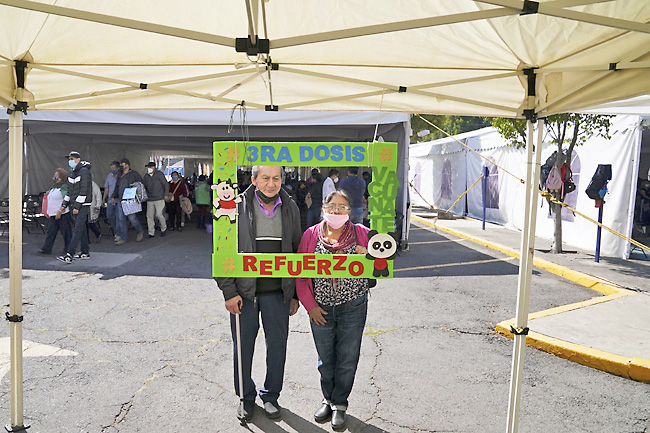LA PAZ, MEXICO (AP) – COVID-19 infections are rising across Mexico, especially in two states home to major tourism destinations on the Caribbean Sea and Pacific Ocean that were busy during the holiday season.
According to data from the federal government, Quintana Roo, where tourists flock to Cancun, Tulum and other spots along the Mayan Riviera, and Baja California Sur, which draws beachgoers to the twin Pacific resorts that make up Los Cabos, are both experiencing some of their highest infection totals since the start of the pandemic.
During the holidays, the waterfront and beaches in La Paz, the capital of Baja California Sur perched on the Sea of Cortez, were packed with tourists. Early in the pandemic they had been closed.
Farther south in Los Cabos, hotels were at 75 per cent of their capacity at the end of December, according to the federal Tourism ministry.
“In December, January, tourism took off,” said hotel-restaurant Manager Isrrael Coto in La Ventana. “People are tired of the confinement.”
Infections shot up too. Baja California Sur saw 700 new infections December 29, compared to a previous high in July of fewer than 600.

On the opposite coast, Quintana Roo, went from 27 cases December 20 to 484 eight days later, though that remained below its single-day high of 574 in August.
“This new variant (Omicron) is very contagious, but fortunately it is not requiring hospitalisation, nor do we have cases of rising deaths,” President Andrés Manuel López Obrador said on Tuesday.
Mexico experienced its worst moments of the pandemic a year earlier when hospitals were overwhelmed and test-confirmed COVID-19 deaths were above 1,400 daily. The real numbers were surely even higher because of limited testing.
However, the summer wave that peaked in August with more than 25,000 new infections in a single day was even higher.
At no time did Mexico close its borders or require negative test results for arriving tourists.
Airports did require travellers to fill out a health form and many for a time were checking temperatures.
Only at the shared border with the United States was cross-border traffic limited to the essential until November.
Coto considered the return of tourists to the beaches positive, but recognised there was concern over the rise in infections.
“There’s a little nervousness,” he said. “The vaccine helped a little to give some certainty, but even so.”
Health Secretary Jorge Alcocer said, recent studies appear to indicate that even though there are new variants, the prevalence of vaccines could begin to mitigate the most serious effects of the virus.
He emphasised that that was still just a hypothesis.
Mexico has vaccinated 88 per cent of adults and has started giving a third dose to the elderly, health workers.
Teachers will begin receiving the booster in the coming days.
“We are not as worried as before because most people are vaccinated,” said Arturo González Ledesma a doctor at Ajusco Medio Hospital in Mexico City, which has specialised in COVID-19 patients since the start of the pandemic.
“Only in the unvaccinated do you see the face of terror.”


